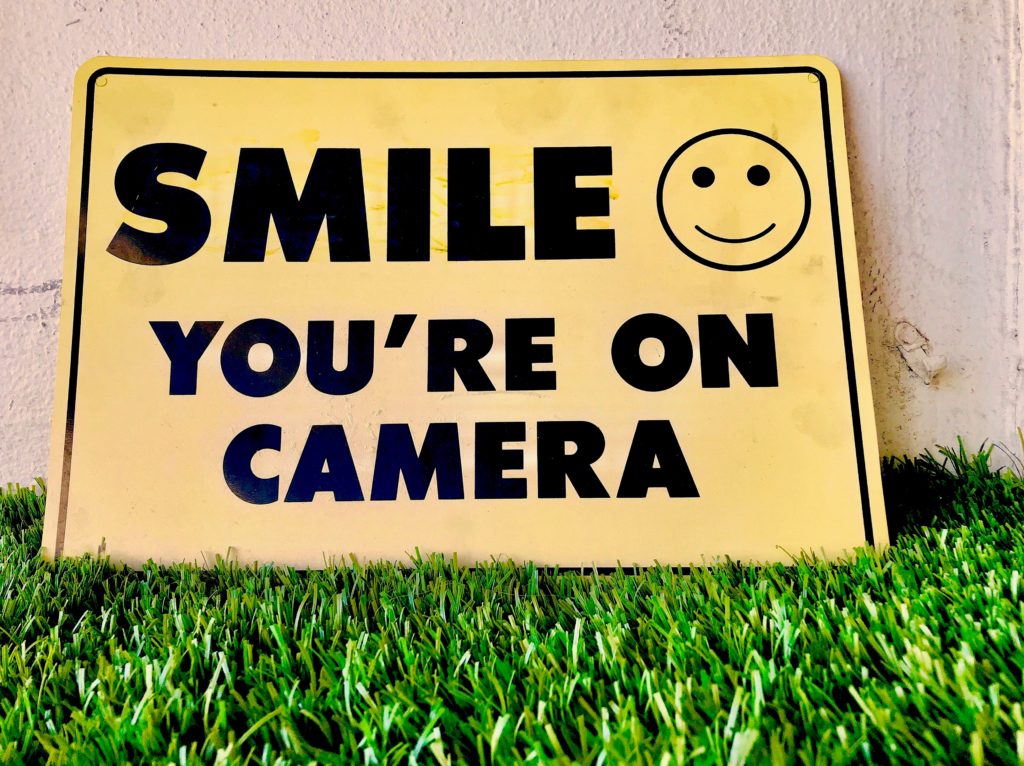Will Apple’s new iOS 14 app kill Facebook ads and your business?

How d'you like them apples, Facebook?
Not a lot!
There is blood on the tracks in the clash of the big tech titans, which is hotting up over Apple's privacy and Facebook's personalized ads.
Much ado about ads and App Tracking Transparency iOS 14
Cooking up a storm (in a teacup)
Tim Cook (Apple CEO) tweeted on December 7th, 2020, to state that:
“We believe users should have the choice over the data that is being collected about them and how it’s used. Facebook can continue to track users across apps and websites as before, App Tracking Transparency in iOS 14 will just require that they ask for your permission first.”
The tracks of Mark's tears: So what is Facebook up in arms about?
App Tracking Transparency iOS 14
What’s that when it’s at home?
Worry not!
Apple’s App Store is at hand to explain the latest version of their iOS (or iPhone operating system) which is the software that powers the iPhone, just in case you were wondering:
“the App Store will help users understand an app’s privacy practices before they download the app. On each app’s product page, users will be able to learn about some of the data types an app may collect, and whether the information is used to track them or is linked to their identity or device.
You will soon be required to provide information about your privacy practices in App Store Connect. If you use third-party code — such as advertising or analytics SDKs — you’ll also need to describe what data the third-party code collects, how the data may be used, and whether the data is used to track users.”
So now you need a license to track?
If you like...but it's permission, really:
“you will need to receive the user’s permission through the AppTrackingTransparency framework to track them or access their device’s advertising identifier.
Tracking refers to the act of linking user or device data collected from your app with user or device data collected from other companies’ apps, websites, or offline properties for targeted advertising or advertising measurement purposes.
Tracking also refers to sharing user or device data with data brokers.”
So how do I get permission?
“To request permission to track the user and access the device’s advertising identifier, use the AppTrackingTransparency framework.
You must also include a purpose string in the system prompt that explains why you’d like to track the user.
Unless you receive permission from the user to enable tracking, the device’s advertising identifier value will be all zeros and you may not track them as described above.”
Apple has given developers documentation specifying the staggering amount of detail (about 34 separate sections worth) that they must disclose regarding their handling of user data.
What are Apple’s "privacy nutrition labels"?
No, you can’t eat them!
They are "mandatory" privacy labels for apps in the App Store or, as Shruti Dhapola (writing in The Indian Express) describes them, “little snippets which show the data being collected by apps.
More importantly, Apple is cracking down on apps tracking user behaviour outside of their apps.
This tracking behavior is crucial for apps like Facebook, which have their business model built around being able to target advertisements on the basis of this data.
Apple’s new “AppTrackingTransparency” framework means a user has to grant explicit permission before an app can track them or access their “device’s advertising identifier”.
The advertising identifier in each device is a unique id to serve targeted ads and it records what sites you are visiting, your interests, where you shop, where you wish to shop and so on.
The new policy might mean that Facebook could no longer access this if users choose to block it.”
This brings us to the big tech bone of contention.
Cook is pro-choice, so does that make Zuckerberg anti-choice?
Not necessarily!
Would you defend Facebook here?
No? Well here’s someone who does: Dan Levy, leader of the Global Small Business team at Facebook.
To be tracked or not to be tracked?
That is the question.
On December 16th, 2020, Facebook’s Dan Levy stated that:
“They’re creating a policy — enforced via iOS 14’s AppTrackingTransparency — that’s about profit, not privacy...Apple uses data it collects — including in-app purchase data that Apple collects from within apps owned by other companies — to improve the efficacy of Apple’s own ads products.
And, if people don’t want Apple using their data for ads, they’ll have to go find the control deep within their iPhone settings.”
Apple users might win greater freedom but at what cost to the rest of us?
Is there a half-eaten maggot in this apple?
How will Apple’s new app jeopardize Facebook ads and your business?

Are we witnessing the death of personalized ads?
And the small businesses that rely on them?
“This affects not just app developers, but also small businesses that rely on personalized ads to grow. Here’s why. Small businesses have small budgets. For these small budgets to work, they have to be targeted at the customers that matter to small businesses.
It doesn't do a local wedding planner any good to reach people who aren't planning a wedding. Likewise, it doesn’t do a small ecommerce outfit selling customized dog leashes any good to reach cat owners.
Put simply, by dramatically limiting the effectiveness of personalized advertising, Apple’s policy will make it much harder for small businesses to reach their target audience, which will limit their growth and their ability to compete with big companies.
Facebook is speaking up for small businesses. Apple’s new iOS 14 policy will have a harmful impact on many small businesses that are struggling to stay afloat and on the free internet that we all rely on more than ever.”
Is the human face of Facebook the champion of small businesses or is Zuckerberg just trying to save his own butt (again)?
“Facebook is committed to standing with small businesses and their use of personalized ads to bring people free content.”
Who do ads help most? The little fish or the Leviathan that is FB?
Who is the real friend of small businesses?
“So who is truly impacted? Your neighborhood coffee brewery, your friend who owns their own retail business, your cousin who started an event planning service and the game developers who build the apps you use for free.”
Do the ads actually help?
“These changes will directly affect their ability to use their advertising budgets efficiently and effectively.
Our studies show, without personalized ads powered by their own data, small businesses could see a cut of over 60% of website sales from ads.
We don’t anticipate the proposed iOS 14 changes to cause a full loss of personalization but rather a move in that direction over the longer term.”
Does Facebook really need all your data to provide good advertising?
“We believe that personalized ads and user privacy can coexist, without the collateral damage iOS 14 will bring.
We, and others in the industry, are investing deeply in solutions that increase privacy while still enabling businesses to thrive online.
Unfortunately, Apple is making far-reaching changes without input from the industry and the businesses most impacted.
Why?
As far as we can see, Apple has another strong motive.”
Is Apple defending the consumer or does the big Apple want to become even bigger until it's the only Apple on the tree?
“If these changes go through, established businesses with large marketing budgets will have the advantage — once again — taking us back to the age of TV advertising. But the big business that benefits the most is Apple.”
Are we just swapping one Big Brother for another?
Apple’s move may save us from the all-seeing panoptical eye of Facebook and its dominion over data, but if Apple’s apps become the only choice for mobile users then what will happen to the competition?
“We believe Apple is behaving anti-competitively by using their control of the App Store to benefit their bottom line at the expense of app developers and small businesses.”
If Apple gains a monopoly there will be no competition to stop it from turning into a rotten Apple, leaving consumers with no purchasing power to challenge it.
Moreover, your favorite local businesses - perhaps owned by you, your family, or friends - might go bankrupt after Apple hammers the final nail into the coffin after a difficult year.
But hey, at least our data will be safe, right?
“They’re hurting small businesses and publishers who are already struggling in a pandemic.
We’ve heard from many of you, small businesses in particular, that you are concerned about how Apple’s changes will impact your ability to effectively reach customers and grow — let alone survive in a pandemic.”
Take a bite (or byte) into the other half on the Apple
In their defense, an Apple press release also claims to be helping small businesses by launching "The App Store Small Business Program" on January 1, 2021:
“Cupertino California — Apple today announced an industry-leading new developer program to accelerate innovation and help small businesses and independent developers propel their businesses forward with the next generation of groundbreaking apps on the App Store.
The new App Store Small Business Program will benefit the vast majority of developers who sell digital goods and services on the store, providing them with a reduced commission on paid apps and in-app purchases.
Developers can qualify for the program and a reduced, 15 percent commission if they earned up to $1 million in proceeds during the previous calendar year.”
But are businesses really going to benefit from this or will they be used just to increase Apple’s profits?
Tim Cook, Apple’s CEO, again:
“Small businesses are the backbone of our global economy and the beating heart of innovation and opportunity in communities around the world.
We’re launching this program to help small business owners write the next chapter of creativity and prosperity on the App Store, and to build the kind of quality apps our customers love.
The App Store has been an engine of economic growth like none other, creating millions of new jobs and a pathway to entrepreneurship accessible to anyone with a great idea.
Our new program carries that progress forward — helping developers fund their small businesses, take risks on new ideas, expand their teams, and continue to make apps that enrich people’s lives.”
The press release continues:
“Small business owners will continue to benefit from Apple’s unparalleled suite of developer tools — including development applications, programming languages, a secure payment interface, and more than 250,000 essential software building blocks called APIs.
Apple is committed to giving developers the tools to turn their brightest ideas into apps that change the world.”
But how? For better or worse?
“The App Store, which launched in 2008, is the world’s safest and most vibrant app marketplace, currently offering 1.8 million apps and visited by half a billion people each week.
It helps creators, dreamers, and learners of all ages and backgrounds connect with the tools and information they need to build a brighter future and a better world.”
Will we trust them on that?
“Earning the trust of users and developers has been an important goal of the App Store from the beginning.
It’s why every one of the 1.8 million apps on the App Store undergoes a review process that developers and their customers can rely on — one that helps make sure every app is reliable, performs as expected, is free of objectionable content, and upholds the highest standards to protect users’ privacy and security.”
But if you really want to know if Apple is the friend of small businesses then just ask Henrik Huseby: Apple Sued an Independent iPhone Repair Shop Owner and Lost
The Orwellian Apple of my eye (and yours)
Apple is playing the data protection card now it suits them, but what is stopping them from changing their tune when the competition has gone or severely weakened?
People may complain about Facebook ads and the tracking underpinning those ads, but if Apple’s new app effectively kills them, then countless companies will suffer, businesses brought to ruin, damage, and destruction.
You won’t be tracked going to your favorite stores anymore, not only because Apple’s app protects your data, but because the store will have gone bankrupt because its primary source of Facebook advertising will have been dried up by the all-powerful Apple orchard.
Is that the Brave New World we want?

What would the future of Apple dominance look like?
No need to imagine!
Just think back to the talking apple in Fortnite’s "Nineteen Eighty-Fortnite" commercial (last August 13th) that spoofed Apple’s own 1984 anti-Microsoft ad.
“Join the fight to stop 2020 from becoming 1984”
If you think Facebook is watching you now, what will it be like in the future when Apple is watching you?
What would be worse?
You know what they say about the devil you know!
Meandering intermezzo
When you've been researching your favorite subject or your travel plans all day and then you notice ads appearing wherever you go online, does that make you paranoid, uncomfortable and want to freak out?
I’ve often heard anecdotes from people (those who haven’t yet normalized this tawdry modern scenario) who are perhaps more amused by the incident than seriously alarmed, happy just to have a story to tell people when they bump into them.
Or perhaps, without thinking why it appeared, you click on it because you're interested and found it useful.
Even if you realize what is happening (that you're being targeted by Facebook personalized ads) and don't click, at least it's presenting you with something potentially interesting for you.
Better than random ads that have no value for you and are just annoying, however much we learn to ignore them.
We can't escape ads, so isn't it just a question of which kind we prefer to see?
What kind of future do we want?
A Facebook future where our data is used to deliver ever more personalized ads as a service more than an irritation?
Or an Apple future where your data is safe but the irrelevant and therefore irksome ads just keep coming?
iPhone users will soon have that choice, but as with every choice comes the responsibility to make an informed choice, with knowledge of what the consequences are, not only for yourself but for everyone else as well.
Who stands to suffer from this?
Not only Facebook but all the businesses who depend on their ads to stay afloat, along with the agencies who depend on those businesses and so on, until this whole digital and real-world chain of being is broken, leaving many struggling to survive, if not bankrupt and, who knows, looking for another job, going back down to where they started on the ladder, and returning to what they wanted to escape from, what inspired them to start their own business in the first place.
All gone!
What comfort will smug sanctimoniousness bring to them when you argue that you were just preventing your data from being used to track you on moral grounds?
Pause for thought...
Part 2 coming soon...
Your ultimate guide to strategic outsourcing
Subscribe for expert tips, trends, and tailored solutions.


